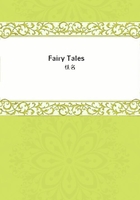
第241章
IN a house, with a large courtyard, in a provincial town, at that time of the year in which people say the evenings are growing longer, a family circle were gathered together at their old home. A lamp burned on the table, although the weather was mild and warm, and the long curtains hung down before the open windows, and without the moon shone brightly in the dark-blue sky.
But they were not talking of the moon, but of a large, old stone that lay below in the courtyard not very far from the kitchen door.
The maids often laid the clean copper saucepans and kitchen vessels on this stone, that they might dry in the sun, and the children were fond of playing on it. It was, in fact, an old grave-stone.
"Yes," said the master of the house, "I believe the stone came from the graveyard of the old church of the convent which was pulled down, and the pulpit, the monuments, and the grave-stones sold. My father bought the latter; most of them were cut in two and used for paving-stones, but that one stone was preserved whole, and laid in the courtyard."
"Any one can see that it is a grave-stone," said the eldest of the children; "the representation of an hour-glass and part of the figure of an angel can still be traced, but the inscription beneath is quite worn out, excepting the name 'Preben,' and a large 'S' close by it, and a little farther down the name of 'Martha' can be easily read. But nothing more, and even that cannot be seen unless it has been raining, or when we have washed the stone."
"Dear me! how singular. Why that must be the grave-stone of Preben
Schwane and his wife."
The old man who said this looked old enough to be the grandfather of all present in the room.
"Yes," he continued, "these people were among the last who were buried in the churchyard of the old convent. They were a very worthy old couple, I can remember them well in the days of my boyhood.
Every one knew them, and they were esteemed by all. They were the oldest residents in the town, and people said they possessed a ton of gold, yet they were always very plainly dressed, in the coarsest stuff, but with linen of the purest whiteness. Preben and Martha were a fine old couple, and when they both sat on the bench, at the top of the steep stone steps, in front of their house, with the branches of the linden-tree waving above them, and nodded in a gentle, friendly way to passers by, it really made one feel quite happy.
They were very good to the poor; they fed them and clothed them, and in their benevolence there was judgment as well as true